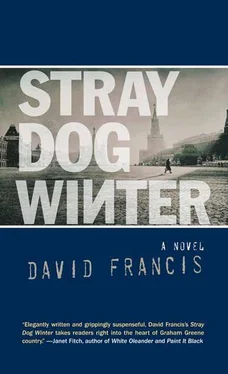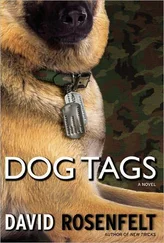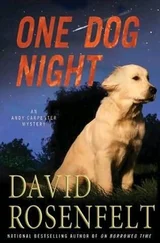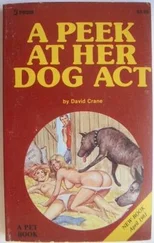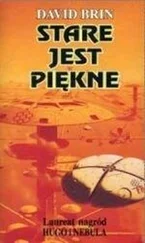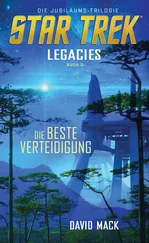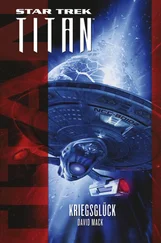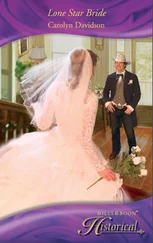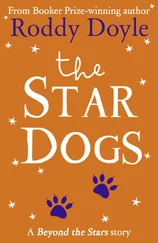Aurelio smiled to himself as if it was hardly Darcy’s business. We are connected by history, he said. He raised his crescent-moon eyebrows. Flirting, finally.
Darcy nodded, he understood about that, and while it felt better to be asking the questions, he still felt out of his depth.
The street seemed as wide as a landing strip, a slushy roundabout with the blunted shape of a workers’ memorial, a determined-faced woman carved in granite, a sickle thrust from one hand and a flag from the other. She looked ready for anything. Darcy pulled out his map to get his bearings. So where are we going? he asked.
To the general’s country house, Aurelio said. He is gone to Odessa on his honeymoon. He arched his back to get comfortable and Darcy found himself doing the same.
What will we do at the dacha? asked Darcy, pleased to know the word. An aubergine crow stooped on top of a lamp, burying its head.
I will get to know you, said Aurelio.
Will I get to know you?
Why not?
Darcy watched the stark city trees whip by, patterning buildings with their webs of twigs and bare branches. I know it sounds naïve, said Darcy, but is it true they cut the corners of gay men’s mouths here?
Aurelio tossed his head back, laughed, then coughed. Who is telling you this?
I read it.
A story, he said, from the West.
Darcy feigned relief. How long have you been here? he asked. He pretended it was like a date, finding out about each other.
First I had scholarship to the Bolshoi, said Aurelio, and I was very strong. I’m sure, thought Darcy. But they only like Russian boys, so I am recruited to a special job. And today is my big day off, so I am with you. He gripped Darcy’s knee and Darcy imagined Aurelio’s dancer’s body, Aurelio undressed. He wanted to stare at him but looked instead at the Byelorussian Station outside the window, foreboding and classical, surrounding three sides of a square; it looked different in daylight. That’s where they took my passport, said Darcy.
I will do what I can, Aurelio said earnestly, tomorrow. Then he pointed out the Pravda building, a constructivist block of reinforced concrete and glass. Pravda is meaning truth, he said, and Darcy was relieved at the irony in his tone, his irreverence felt safer than his questioning.
At an intersection where snow ploughs stood fallow they turned. We’re going direction Zagorsk, said Aurelio. Darcy couldn’t read the signs and he’d lost track on his map; they could have been going to hell. A boy ran alongside them with old-fashioned ice skates over his arm and Aurelio regarded the stark multi-sided structure behind the fading figure. Dynamo Sports Palace, Aurelio said. Then they headed what felt like east past a plantation of high-rise flats, their cement-grey made green through the glasses, matching the sky. A fat man walked a cold, reluctant dog.
I’m not sure I could live here forever, said Darcy.
Aurelio understood. Why is your Finola in Moscow? Really?
Darcy felt Aurelio’s coat around him—hearing her real name from his lips seemed strange. She has a grant from the Ministry of Culture, said Darcy. I came to help with one of her projects. He looked out as if uninterested, unsure if he’d already divulged too much. Buildings lower now, a tract of old wooden houses, snowflecked shingle roofs. He’d only told what he knew.
She looks like you, said Aurelio, your friend. Actually, you are both looking Slavic. Like cousins of Navratilova.
We’re just Australian, said Darcy, though he was sure Aurelio already knew that. He just hoped he didn’t know they had American mothers. Being Australian felt more benign in Reagan’s e mpire of evil .
Unexpectedly, Aurelio turned up a narrow windswept road and Darcy grabbed the leather roof strap, felt suddenly less certain. A tractor came out of a driveway and Aurelio slowed to swerve around it. Siblings of destiny then, he said. If he’d caught Darcy in the lie, Aurelio didn’t acknowledge it.
They stopped at a guardhouse; Aurelio produced a laminated pass from his breast pocket and they were ushered on, winding quietly through a scant birch forest where a woman wrapped in a shawl collected wood. She stopped to watch them go by. It is close now, Aurelio assured him, and it felt like they’d entered a rarified place. They motored by a log house set back in the trees. Nabokov once was writing here, said Aurelio.
Darcy said he thought Nabokov wrote in exile.
Aurelio shrugged. Pasternak, maybe. Darcy couldn’t tell if Aurelio was unconcerned with the truth or just trying to keep the trip interesting. They turned up another fresh-swept asphalt path and parked among the trees. Did you read Lolita ? asked Darcy.
Aurelio leaned over, his mouth barely open, his stubble near Darcy’s cheek. No, he said, and Darcy thought they might kiss but Aurelio reached to open the passenger door. He pushed the sunglasses up high on Darcy’s hat like ski goggles.
Lolita is amazing, Darcy said. It always reminded him of the missionary, stamping a child with that. He wondered how he’d have been without it, if he’d have been in and out of so many strange men’s cars.
Outside, the cold was piercing but it was nice to be rid of the city; no smell of fumes or sweaty polyester, just Aurelio’s leather scent in the lining of the coat as Darcy pulled the collar up. He looked over at Aurelio’s velvet skin and wondered if he felt the chill as deeply, his Cuban blood so thin the wind might blow through him too.
Aurelio unhinged the windshield wipers, put them in the trunk. People are stealing all things here, he said. Bad as Havana. He wrapped his burgundy scarf around his throat and ushered Darcy forward down a track flanked with low vines and fallen branches. Darcy wanted to reach for Aurelio’s hand, to feel romantic, a longing that felt unfamiliar, no clear procedure like with the soldier in Prague. Where’s the dacha? asked Darcy.
Aurelio pointed ahead, along a path hemmed in by firs and pines, Fin far away on the green-tinged street, left behind for once. With the crackling twigs underfoot and each crunch of snow it felt like there were others with them, but when Darcy looked back there was nobody. Then Aurelio stopped and put one hand on Darcy’s shoulder, gestured to an expanse of snow. In the spring there is a field of yellow dogs, he said, as if he wanted Darcy to know it was prettier then.
Darcy thought of the vase of flowers on Fin’s counter, a common variety, how he’d wanted to hurl them at her. He saw the field was white now; Jobik must have bought her flowers from a hothouse. No wonder they had wilted. Darcy wished it were spring as he followed Aurelio over planks set above a frozen seep. Do you know what a wild-goose chase is? he asked.
Aurelio looked up as if there might be geese but there were only two military planes flying low but suprisingly quiet overhead. The dacha came into view . No evidence of a garden, just the ashy trunks of birches and the pine logs of the cabin, a weathervane with a rooster and a red star above a door. Aurelio searched for keys in the pocket of his coat, halted at laughter and banging from inside the house. Darcy tugged at his sleeve. I thought we’d be alone, he said.
Never mind her, said Aurelio.
A television blared as they walked to a shuttered window. Aurelio waved at a drooling girl who ate an apple wildly. She sat in a wheelchair surrounded by toys, their limbs torn off and their fluffy innards on the floor. She threw the apple at the television, then picked up a wooden spoon and started slamming on her eating tray. Her short brown hair was dipped to one side in a manner that was almost seductive. It was as if she couldn’t see them out there.
That’s Kapka, Aurelio whispered, the general’s daughter; she’s like a little girl.
Читать дальше
